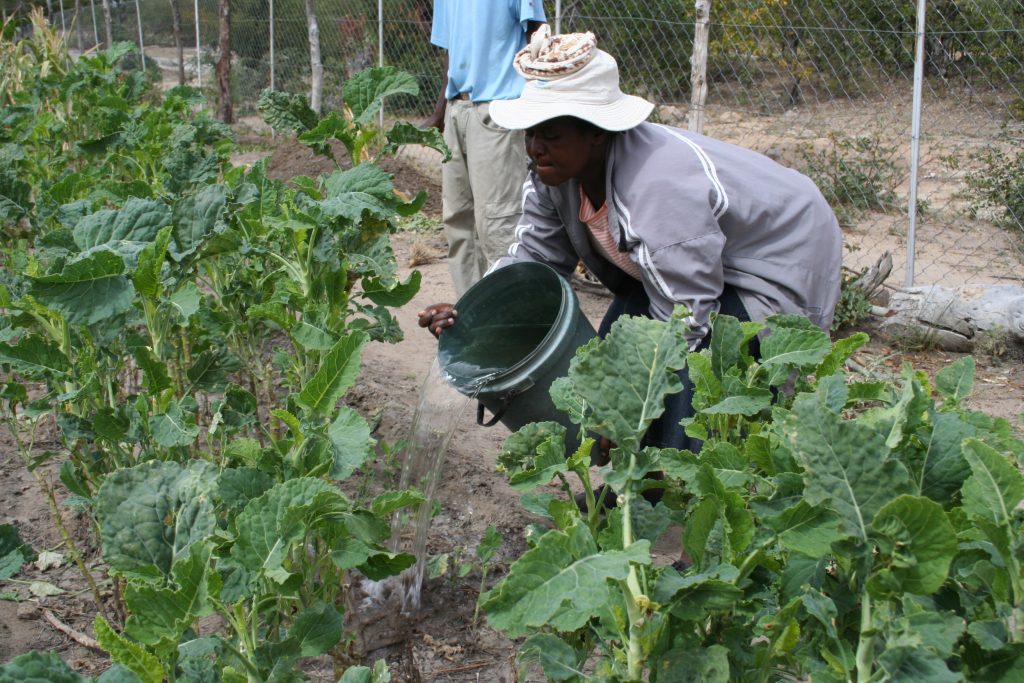Our development is difficulty driven: thoughts from Zimbabwe’s Uluntu Community Foundation
07 Sep 2017
Difficult situations present the perfect obstacle to development – but not for us.
Zimbabweans are a resilient and, simply put, development-stubborn people. The mantra of development in this part of the world is if you can thrive in Zimbabwe, you can live anywhere and do better. This is what has underlined the story of Uluntu Community Foundation based in Bulawayo, Zimbabwe’s second major city.
The Uluntu Community Foundation has harnessed hope to build lives and empower communities. It has been ten years since the first ad hoc meeting of a group of citizens who shared a zeal to reshape the development agenda – the Uluntu Community Foundation was born, and since then has made handy work of difficult situations. We are difficulty driven. We attest to enjoying the dividends of delivering on development in a country faced with multiple challenges, but also endless opportunities.
We found our opportunity to rewrite the development narrative – in which donors make funds available and ultimately set the agenda of how recipients can and will develop. We have learnt that ownership of any development is secured when the receivers of a donation set the agenda and prioritize what will enhance their livelihoods – and then donors adds value to that dream. We have developed a visceral understanding that community opinion is the currency of any development initiative. The Uluntu Community Foundation was registered in 2008 by seven individuals concerned about limited people-centered mechanisms for community development and empowerment in the Matabeleland provinces which have a harsh history of low investment, high unemployment and droughts.

Uluntu Community Foundation: providing tools for the building of resources
We are a convener, a broker and a catalyst for community inclusion through participation, training and grantmaking, all based on the assumption that the key to sustainable livelihoods is in the empowerment of households as development change agents. But we are so much more, in that we also:
- Serve as a vehicle to provide tools for the building of resources (financial, technical, personnel, material and intellectual) within and outside communities in the Matabeleland provinces. The tools aim to enhance local philanthropy and build leadership, as well as entrepreneurship at community level.
- Provide leverage for regional and international partnerships, and collaborate in projects initiated by communities.
- Serve as a vehicle to advocate, build awareness and give a voice to local communities.
- Provide technical support to communities in: education, research & documentation, social entrepreneurship and environmental stewardship with a focus on women, children, the aged and disabled.
Does this make us special in the development discourse? Yes. Our community engagement model has allowed us to learn and to be empowered. It has paid us handsomely because we have matched our meager financial resources, with the felt needs of the communities who have allowed us to work with them. A key lesson for us has been to listen to what is often unsaid. An open request for a borehole instead of a classroom block may not always be so if one does not engage in community intelligence to understand what makes that community tick, and what galvanizes their sense of ownership.
We have been empowered as an organization by listening to the communities we have worked with in starting income generating projects, in securing community water access or building an early childhood education centre. Through the foresight of the communities themselves, the Uluntu Community Foundation has made more impact with less financial, technical and skill resources. We work with communities, mostly focusing on women and youths not because they are more vulnerable but because they embody resilience, creativity and they never give up spirit. This has made our organization succeed in the volatile environment that has characterized Zimbabwe in the last decade.
There is scope to clarify and magnify philanthropy in Africa where it is deep-rooted in the social norms of many communities. Giving is part and parcel of what makes us human. It is given that we give and help those without. I think the African brand of giving needs to be applied on a larger scale beyond our communities and promoted as a business strategy. In our working with communities in my country, we have learnt that the value of giving – from small financial resources to skills and time, makes a big impact to those who receive it. It builds bridges for communication, cooperation and co-development.
By: Busani Bafana, Chair, Uluntu Community Foundation
See also: The GFCF’s profile on the Uluntu Community Foundation, “What will make us different?” and “Lifting as she climbed”, a tribute to Inviolatta Moyo Mpuli, Uluntu’s founder.

